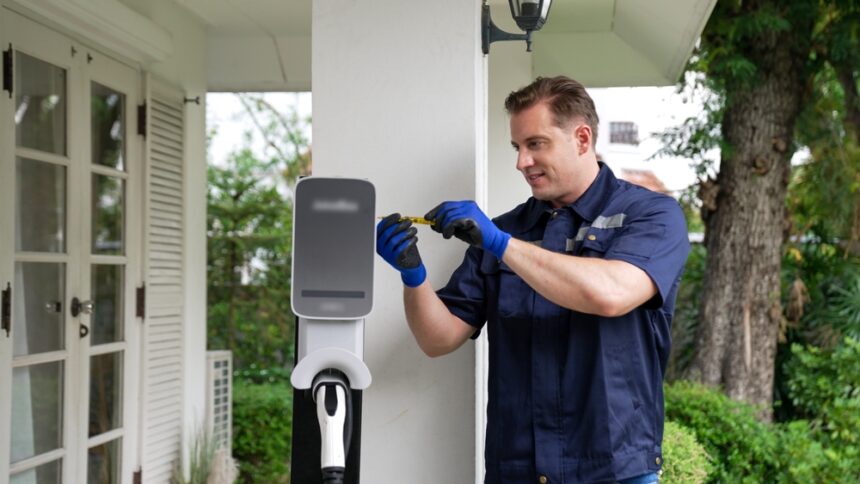An EV charger’s performance depends on how well an electrical system is optimized. Aside from shortening your battery life, a poorly installed charger also increases your electric bill and puts your safety at risk.
Let’s break down the real impact of expert EV car charger installation in Daytona, FL, and what it takes to create a fast, safe, and future-ready charging experience at home and beyond.
The Hidden Costs of Inefficient Charging: What You’re Not Seeing
Repeated inefficient charging cycles can stress your EV’s battery, reducing its range and lifespan. In addition, using electricity during peak hours without a plan can spike your bill.
Watch out for these costly signs:
- Higher-than-expected utility bills
- Slower charge times than the manufacturer specs
- Increased battery wear over time
“Improving inefficient charging is about improving sustainability and long-term cost,” says a certified EV installer in Daytona.
Why DIY Installation Is a Risk You Shouldn’t Take
It might be tempting to install your EV charger yourself, especially if you’re handy. If you want to avoid fire hazards and code violations due to oversights, however, choose instead to entrust the installation to an expert.
Beyond the risk of fire, DIY installations are risky because most homes weren’t built for the load EV chargers demand. A wrong connection could cause permanent damage to parts of your home.
If safety, warranty protection, and peace of mind matter to you, hire a licensed electrician.
How To Maximize EV Efficiency?
Your entire electrical setup plays a role in how efficiently your charger functions throughout its lifespan. If your panel can’t handle the extra load, you’ll experience tripped breakers, voltage drops, or worse. An outdated panel often can’t support a Level 2 charger at all.
Here’s what to check:
- Is your panel rated at least 200 amps?
- Are there open breaker slots available?
- Does your wiring meet modern safety codes?
A new EV charging station installation could be the key for you to maximize EV efficiency.
Boost Charging Speed and Cut Energy Costs with Smart Installation
Evaluations are central to improving your whole system. From data gathered by experts through evaluations, they will recommend models that work best with your usage. Should you choose, they may even install smart charging solutions that align with your utility’s off-peak rates.
Benefits of a smart installation:
- Faster, more consistent charge speeds
- Reduced stress on your battery
- Monthly savings through off-peak charging
Look for installers who understand energy optimization, not just electrical wiring.
Understanding and Using Your EV Charging Data
Many EVs and charging stations give you access to detailed charging data through apps. This information helps you track your habits, spot inefficiencies, and make changes that improve your performance and lower your cost.
Data to watch:
- Charge start and stop times
- Peak vs. off-peak usage
- Session length and total energy used
“Most EV owners don’t realize how much info their charger already gives them. Learning to read the data is like finding free money,” says an EV charger installation technician.
Keeping It Running: Simple Charger Maintenance Tips
Like any appliance, EV chargers need routine care. Dust, debris, or exposure to the elements can cause overheating or malfunction over time. Keeping the unit clean and secure improves both efficiency and safety.
Maintenance checklist:
- Wipe the unit and cable monthly with a dry cloth
- Check for frayed wires or loose connections
- Make sure the charger software is up to date
Keep the area around the charger well-ventilated and dry. For outdoor units, consider a weatherproof cover.
“Charge Anxiety” Is the New Range Anxiety—Here’s How to Beat It
Finding a charger that’s available, working, and fast is a new worry that emerged from EV use. Planning your public charging strategy is just as important as your setup at home.
For smarter charging, use mobile apps that can help you locate nearby stations. If you haven’t already, it pays to learn the difference between level 2 and DC fast chargers. You wouldn’t overcharge at home, so you should also avoid doing this while out in public. Charge just enough until you reach your next stop.
Respect station etiquette: move your car when finished and don’t unplug others.
More than a plug, your EV charger is a gateway to how you experience your vehicle every day. This is why it pays to get the right panel, the right charger, and the right team.


